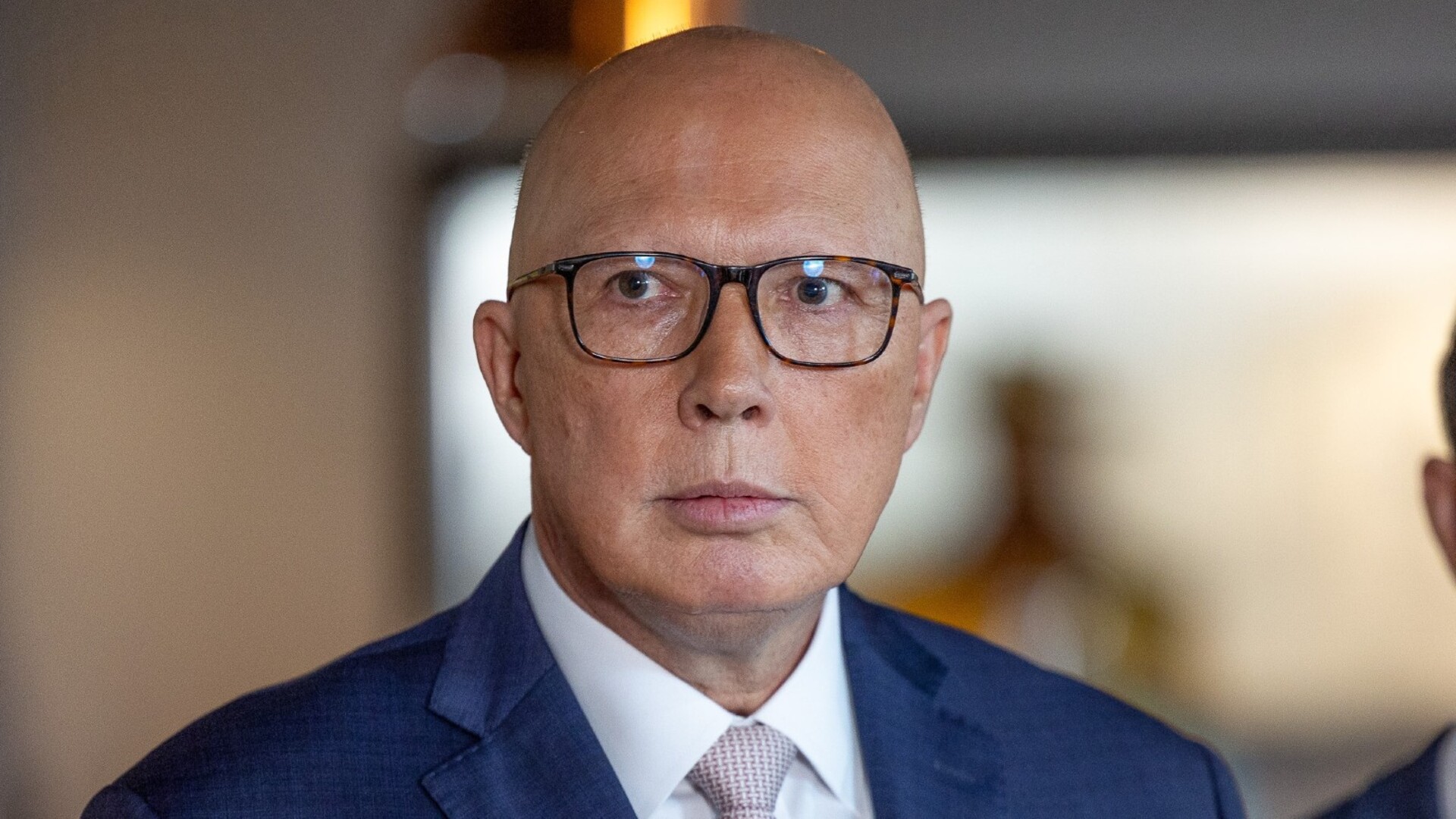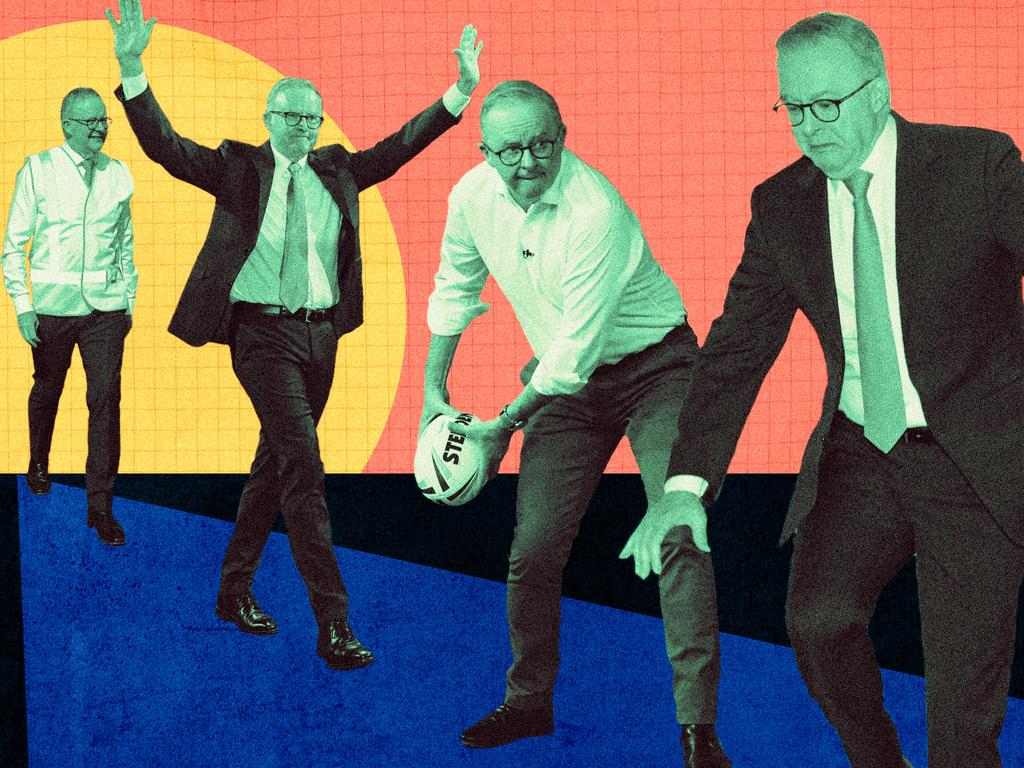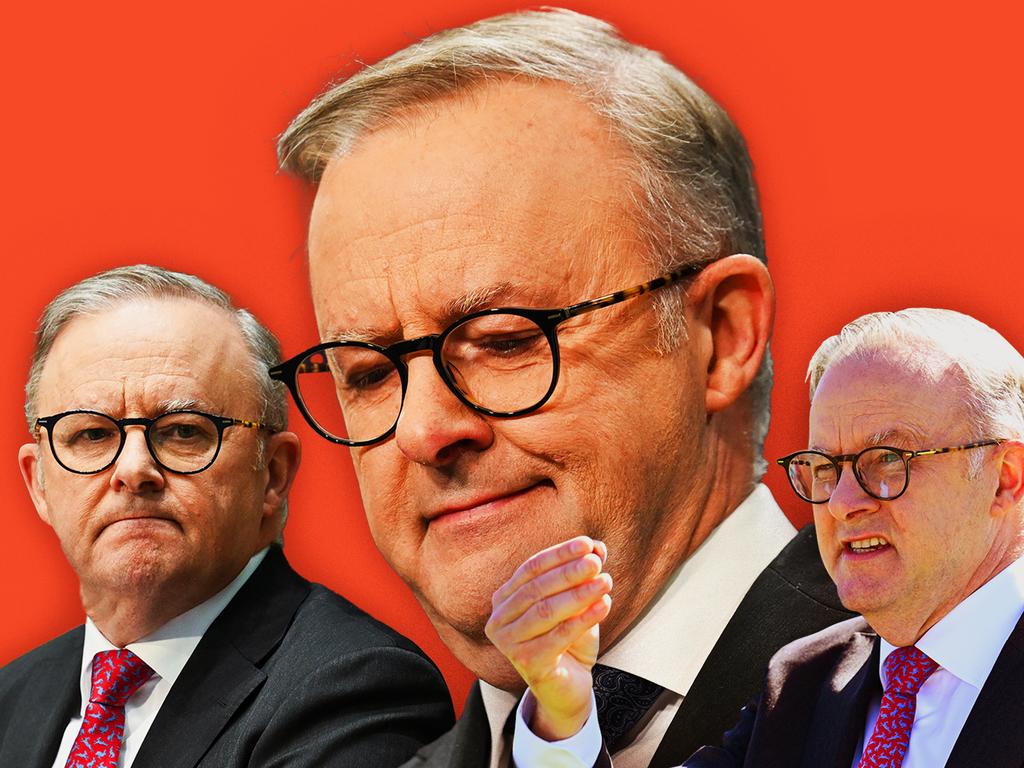Election 2025: Dutton warns Labor ‘economic vandals’ will smash household budgets
Peter Dutton has accused Anthony Albanese of ‘economic vandalism’ and warned voters their groceries, energy bills, insurance costs and rents will continue surging next year.

Peter Dutton has accused Anthony Albanese of “economic vandalism” and warned voters their groceries, energy bills, insurance costs and rents will surge next year, as the Coalition escalates its cost-of-living assault in the final week of the campaign.
Using International Monetary Fund forecasts and new Parliamentary Library data, the Coalition is warning of more cost hikes for staple grocery items, flatlining real wages growth and ongoing mortgage stress across the country.
After the IMF last week forecast weaker economic growth and higher inflation in Australia, the Opposition Leader said the price of coffee, bread, laundry liquid, roast chickens, electricity, capital city rents and home insurance would continue rising under Labor.
Based on IMF expectations that inflation will hit 3.5 per cent in 2026, the Coalition claims electricity bills would have jumped by more than $1000 compared to levels recorded before the 2022 election, rents and house insurance premiums by $9106 and $1400 annually, and selective staple grocery items by more than $440 per year.
The IMF last week slashed Australia’s GDP growth projections for this year to just 1.6 per cent, down from its 2.1 per cent forecast in January. Domestic inflation is expected to dip to 2.5 per cent this year before lifting to 3.5 per cent in 2026.
As Mr Dutton pivots his campaign back to the cost-of-living crisis, Coalition analysis of Parliamentary Library data also shows monthly mortgage payments in capital cities jumped by an average 57 per cent between March 2022 and October last year, representing an extra $1950 per month for households.
“The country has gone backwards under Labor. You’re paying more for your power, your groceries and your housing, and it will only get worse with more spending and higher taxes. This is economic vandalism. Families are drowning while Labor pats itself on the back,” Mr Dutton told The Australian.
“Helping Australians with the cost of living while we fix Labor’s mess is part of our plan to get Australia back on track.”

With the Coalition falling behind Labor in the polls ahead of the May 3 election, Mr Dutton has struggled to cut through on cost-of-living policies headlined by halving fuel excise for 12 months, providing low- and middle-income earners with up to $1200 in tax relief, and providing first-home buyers with a tax cut.
The Australian last week revealed the latest SEC Newgate Mood of the Nation survey, which polled 1214 people from April 10-14, showed Labor streaking ahead of the Coalition on who voters believe is better to manage cost-of-living pressures. After the Coalition nudged ahead of Labor in November, the ALP now leads by 42 to 24 per cent.
In a concerning trend for the major parties, YouGov polling commissioned by nonpartisan advocacy group Amplify revealed 47 per cent of Australians say they are worse off financially than they were a year ago compared with 19 per cent who believe they are better off.
The poll of 1505 voters, conducted from April 4-9, also found 72 per cent of Australians think politicians are primarily focused on winning votes, with only 5 per cent believing they’re focused on solving the country’s challenges. As Labor and the Coalition pledge tens of billions of dollars to build more homes, 56 per cent of voters said they were paying close attention to housing announcements.
Amplify, a powerful alliance of business, social and youth leaders established last year by Seek co-founder Paul Bassat, on Sunday hit out at the major parties for being obsessed by short-term policies that fail to solve the nation’s biggest challenges.
Amplify chief executive Georgina Harrison, a former senior NSW and federal public servant who has put housing at the forefront of the group’s advocacy work, said “Australians want to see action, not just promises”.
“We’re seeing strong engagement with policy, particularly around housing, but the level of trust in political intent is low,” Ms Harrison said.
“Housing is the frontline of a broader crisis. Home ownership has become out of reach for many young Australians. Rents are skyrocketing. Social housing waitlists are blowing out. And yet the political response has been a cycle of short-term grants and tax tweaks, demand-side Band-Aids on a supply-side problem.”

Amid increasing confidence the Reserve Bank will continue slashing rates after delivering its first cash rate cut in more than four years at its February meeting, the Coalition has used Parliamentary Library data breaking down loan increases in capital city electorates to highlight extreme mortgage stress for households.
The Coalition has used the electorate data, based on mortgage payments required on new loans taken out at the time of purchase in October 2024 compared to March 2022, to calculate averages for all capital cities.
Opposition assistant home ownership spokesman Andrew Bragg said “from 2022 to 2024, all Australian capital cities have been smashed with mortgage payment rises, with Perth payments up by 105 per cent, Adelaide’s jumping by 90 per cent, and Brisbane’s rising by 64 per cent”.
“Sydney is up by 56 per cent while Darwin mortgage payments have shot up by 52 per cent. Since 2022, the average Australian mortgage payment is up by almost $2000 a month,” Senator Bragg said.
Writing in The Australian last week, Jim Chalmers said “when we came to office, inflation was much higher and rising, real wages and living standards were falling sharply”.
“Under Labor, inflation has moderated substantially, now less than a third of its peak in 2022 and around the midpoint of the target band. Interest rates have started to come down, annual real wages have been growing for five quarters, and real disposable incomes are growing again,” Dr Chalmers wrote.
He said the IMF Fiscal Monitor showed “the Albanese government’s responsible budget management has secured Australia a top five ranking in the global fiscal league tables”.







To join the conversation, please log in. Don't have an account? Register
Join the conversation, you are commenting as Logout